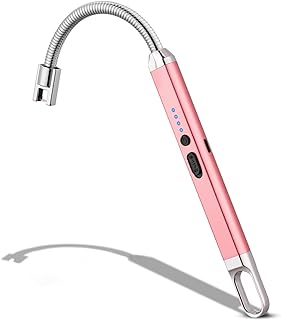Lighter vs. Matches: The Ultimate Showdown
The age-old battle between lighters and matches is a classic, much like Coke vs. Pepsi or cats vs. dogs. Both have their loyal devotees, and each boasts its own unique set of advantages and disadvantages. Let's break down the key contenders and see who emerges victorious in this fiery duel.
Round 1: Convenience
* Lighter: The clear winner. A compact lighter can easily fit in your pocket or purse, making it incredibly portable and always accessible. You don't need to worry about a box of matches taking up precious space.
* Matches: While a matchbook can be reasonably portable, carrying a box of matches is a bit more cumbersome, and finding a clean surface to strike them can be a challenge.
Round 2: Reliability
* Lighter: Lighters can be more reliable, particularly the ones with a flint mechanism. They often work even in windy conditions and can be used for a sustained period.
* Matches: Matches can be fickle. A strong wind can extinguish the flame before you can even light your cigarette or campfire. They also have a limited burn time, requiring you to constantly strike new matches.
Round 3: Cost and Accessibility
* Lighter: Lighters are generally more expensive than matches, but a single lighter can provide numerous uses before needing a refill.
* Matches: Matches are a readily available and affordable option, often found in convenience stores and grocery stores. They are also typically more disposable, making them less environmentally friendly.
Round 4: Safety
* Lighter: While lighters are safer than matches in terms of accidental fire hazards, they can pose risks if not handled properly. Child-resistant lighters are available for safety, but many are not.
* Matches: Matches are more prone to accidental fires, as they are easily ignited and can burn for a longer period. They are also a choking hazard for young children.
Round 5: Versatility
* Lighter: Lighters can be used for more purposes beyond just lighting a cigarette. They can be used to light candles, campfires, and even cook meals.
* Matches: While useful for lighting cigarettes and starting fires, matches are less versatile than lighters.
The Verdict:
Both lighters and matches have their strengths and weaknesses. The ultimate winner depends on individual needs and preferences.
* Lighter: Ideal for those who value convenience, reliability, and versatility.
* Matches: A cost-effective option for those who prioritize affordability and accessibility.
Ultimately, the choice between lighters and matches boils down to personal preference and the specific situation. Both are valuable tools for different purposes, and both have earned their place in the history of fire-starting.


